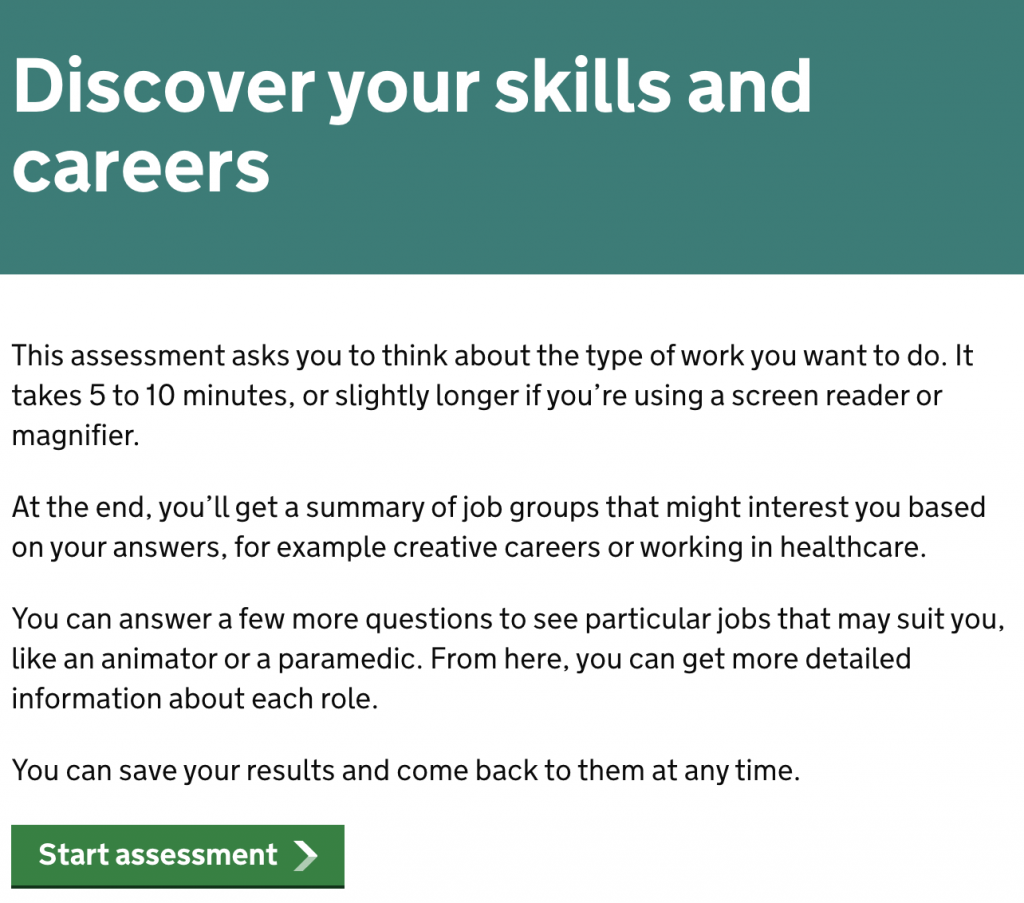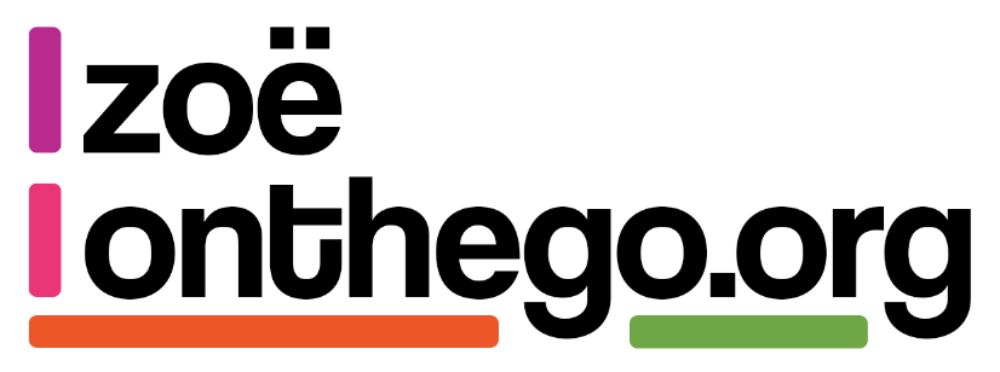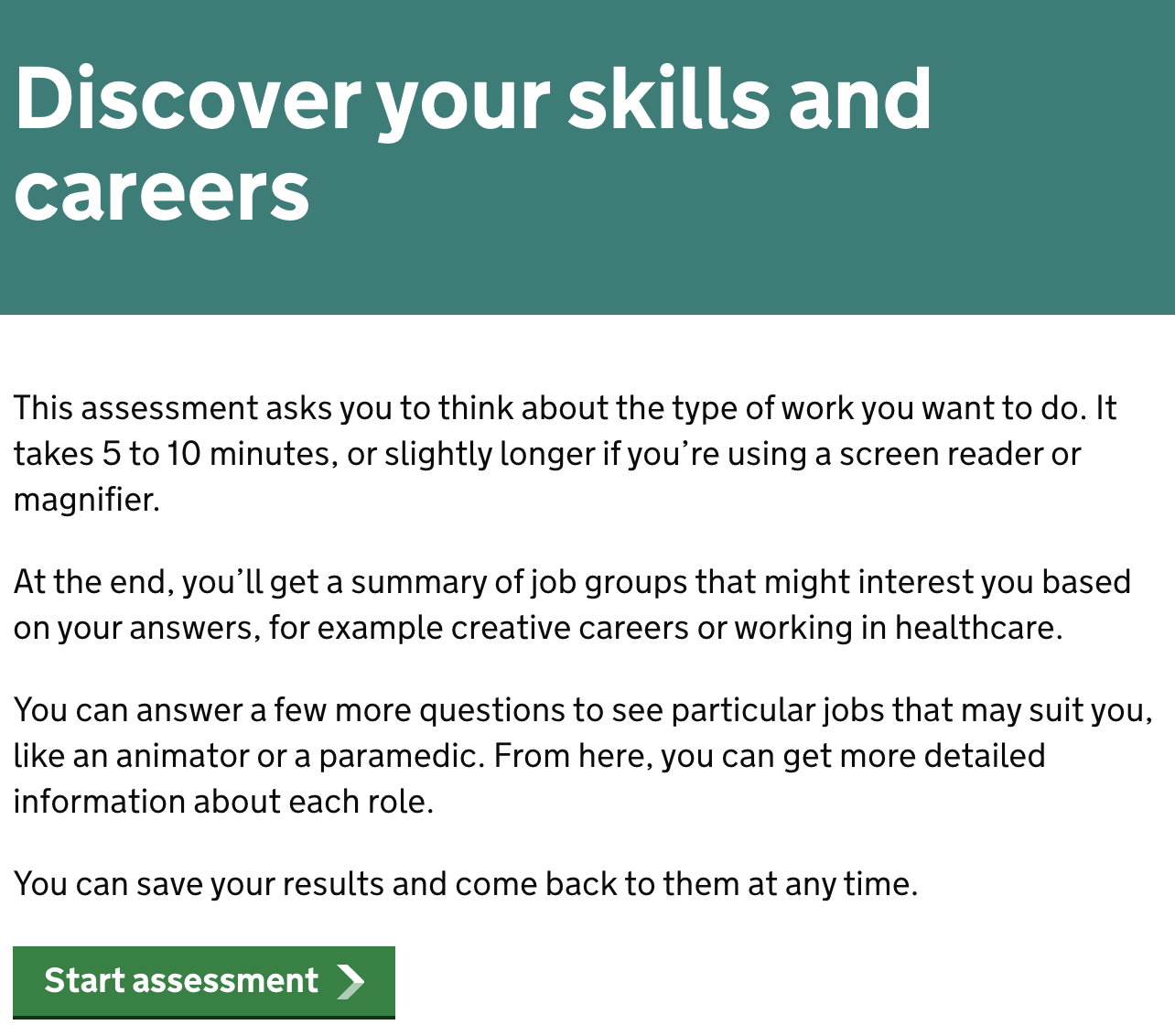A blog on the new National Careers ‘Discover your skills and careers’ Service
As I sit here are ten past ten on a Wednesday night watching social media have a field day with the new National Careers service, I’m yet again reminded about the importance of the Digital Service Standard, especially Standard Number One – Understand users and their needs. And why we need to get Ministers and senior leaders to understand their importance.
The first role of any good User Centric designer or Product Manager within the public sector is understanding the problem you’re trying to solve.
In this case, the problem we’re facing is not a small one. Because of COVID-19 we currently have approximately 1.4M people unemployed with many more still facing redundancy due to the ongoing pandemic. ONS data states that between March and August, the number of people claiming benefits rose 120% to 2.7 million.
The Entertainment, Leisure and Hospitality sectors have been decimated, amongst many others. Just this week we’ve had Cineworld announce 45,000 job loses and Odeon may soon be following suit. Theatres and live event venues across the country are reporting they are on the brink of collapse.
So, when the Chancellor announced as part of the summer statement, a whole host of support for people too retrain; it included advice for people to use the new Careers and Skills advice service to get ideas on new career options.
A service to help people understand new career options right now is a great idea, it absolutely should meet user need.

Unfortunately, you only have to look at the headlines to see how well the new service has been received. The service is currently such a laughing stock that no-one is taking it seriously; which is a massive shame, because it’s trying to solve a very real problem.
A number of my friends and acquaintances have now taken the quiz (as has half of twitter apparently) and it was suggested I have a look. So I did. (As an aside, it recommended I retrain in the hospitality industry, all who know me know how terrible this would be for all involved, last week I managed to forget to cook 50% of our dinner, and I am clinically unable to make a good cup of coffee, never mind clean or tidy anything!)
It has good intentions, and in a number of cases, it may not be too far off the mark; the team behind the service have done a write up here* of how they have developed it, and what they set out to achieve. Unfortunately, while the service seems to be simple to understand and accessible to use; what it seems to be missing is any level of context or practicality that would help it meet the problem it’s being used for.
*EDIT: Which has sadly now been taken down, which is a massive shame, because they did good work, but sadly I suspect under political pressure to get something out there quickly. We’ve all been there, it’s a horrid position to be in.
While they have tested with users with accessibility needs, the focus seems to have been on whether they can use the digital service; not does the service actually meet their needs?
My friend with severe mobility and hearing issues was advised to retrain as a builder. Another friend with physical impairments (and a profound phobia of blood) was advised they were best suited to a role as a paramedic. A friend with ASD who also has severe anxiety and an aversion to people they don’t know, was advised to become a beautician. Another friend who is a single parent was given three career options that all required evening and weekend work. At no point does this service ask whether you have any medical conditions or caring needs that would limit the work you could do. While you can argue that that level of detail falls under the remit of a jobs coach; it can understandable be seen as insensitive and demoralising to be recommending careers to people they are physically unable to do.
Equally, unhelpful is the fact the service which has been especially recommended to people who have been made redundant from the worst hit industries; is recommending those same decimated industries to work in, with no recognition of the current jobs market.
My partner, who was actually made redundant from her creative role due to COVID-19, (and the target audience for this service according to the Chancellor) was advised to seek a role in the creative industries; an industry that doesn’t currently exist; and a quick look on social media proves she isn’t alone.



The service doesn’t actually collect enough (well, any) data about the career someone is in, nor does it seem to have any interface to the current jobs market to understand whether the careers its recommending are actually viable.
Unfortunately, the service is too generic, and while it would possibly help school/ college students who are trying to choose their future career paths in a ‘normal’ job market, (And I honestly suspect that’s who it was actually developed for!) it’s not meetings the fundamental problem we are facing at the moment; ie. help people understand their career options in the current market.
If you’ve worked within Digital in the Public Sector you’ve had to deal with Ministers and Directors who don’t really understand the value of user research or why we need to test things properly before we role them out nationally. The current debacle with the careers website is possible a perfect example of why you need to make sure you actually test your service with a wide range of users regularly; not just rely on assumptions and user personas; and why its important to test and iterate the service with real users multiple times before it gets launched. It highlights the need for us to get Ministers to understand that rushing a service out there quickly isn’t always the right answer.
We all need to understand users and their needs. Just because a service is accessible doesn’t mean it solves the problem users are facing.

